Healthiest Cooking Utensils for a Toxin-Free Kitchen
Primal Edge Health participates in the Amazon Services LLC Associates Program and other affiliate programs and therefore, may collect a share of sales or other compensation from the links on this page. This comes at no additional cost to you, and all the prices and availability are accurate at the time of publishing.
The healthiest cooking utensils are the ones that don’t put your health at risk, meaning they don’t contain any harmful chemicals that could end up in your food. However, not all kitchen tools are made equal, and what you’re using right now might be posing hidden dangers in your home.
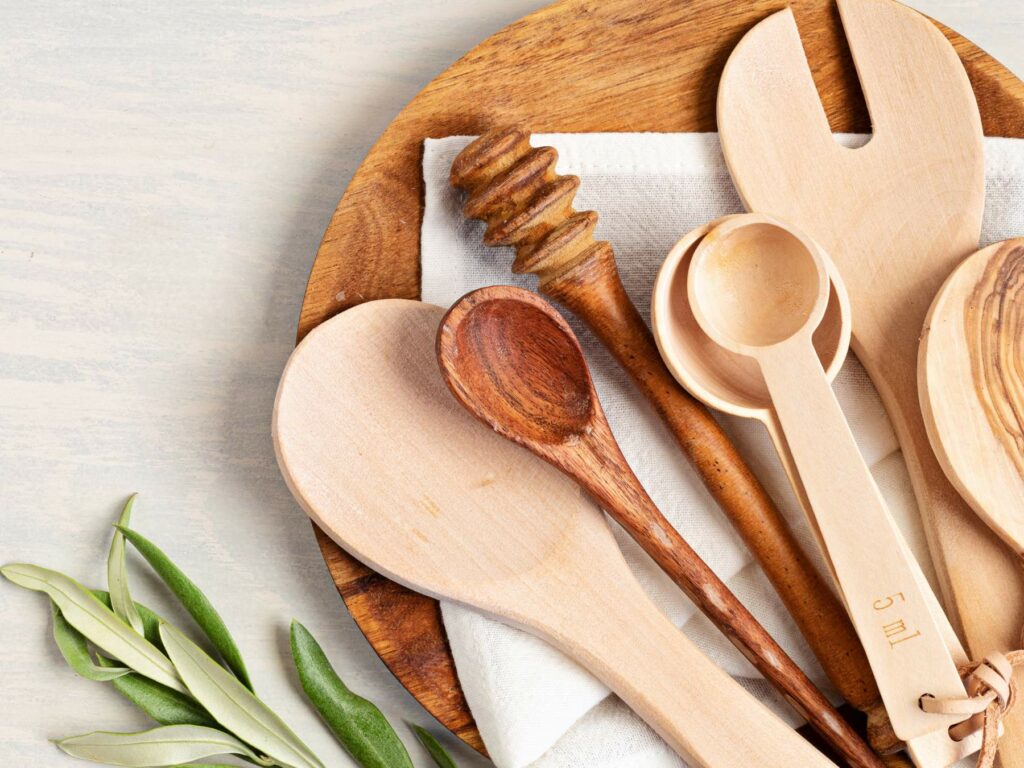
When I first started focusing on a healthier lifestyle, I didn’t give much thought to my kitchen utensils. One day, while making a family favorite stir-fry, I noticed a faint plastic smell coming from the spatula I was using. It dawned on me that cheap plastic utensils might be releasing harmful chemicals into our food.
That moment sparked a change. I researched non-toxic alternatives and replaced my old utensils in a snap. Is it time to replace yours, too? Here’s what you need to know.
This post may contain affiliate link(s). As an Amazon Associate, I earn from qualifying purchases. See Disclosures.
Table of Contents (click to view)
Best Non-Toxic Cooking Utensils to Add to Your Cart
At this point, you’re probably itching to make your kitchen safer and healthier for your family. Don’t worry, I got you covered. Here are some of my favorite kitchen utensils you can add to your list today!
FineDine Stainless-Steel Kitchen Utensil Set
We’re starting off strong with the Stainless Steel Kitchen Utensil Set from FineDine, complete with all the basic tools you need in the kitchen like a slotted spatula, ladle, and pasta server. Crafted from high-quality stainless steel, these utensils are rust-resistant and built to last. I’ve had mine for about three years now!
Each utensil features an ergonomic handle for comfortable use, making cooking a breeze. Plus, they’re dishwasher-safe for easy cleanup.
CAROTE Silicone Cooking Utensils Set
If you prefer silicone, I recommend this aesthetically pleasing Silicone Cooking Utensils Set from CAROTE. These utensils are safe for non-stick cookware, preventing scratches and ensuring durability.
The set includes a variety of tools, such as a spatula, ladle, and tongs, catering to all your culinary needs. Ergonomically designed handles provide a comfortable grip so cooking is more enjoyable. Plus, I love how the modern design doubles as sleek kitchen decor.
These are also a great set if you frequently use cast iron skillets or stainless steel pans. They won’t scratch your surfaces and they’re easy to clean even with tough food residue.
OXO Good Grips 3-Piece Wooden Spoon Set
Personally, I love using wooden spoons for soups and stews, mainly because they’re more comfortable to use with all the constant stirring. That’s why I invested in the Good Grips Wooden Spoon Set from OXO, and it’s been one of my best kitchen decisions yet.
Made from solid beechwood, these spoons are sturdy and resistant to heat. The set includes three different spoon sizes, which are perfect for beginners setting up their kitchens. Plus, each spoon features an ergonomic handle designed for a comfortable grip, ensuring ease of use.
GXONE Stainless Steel Kitchen Utensils Set with Holder
The GXONE Stainless Steel Kitchen Utensils Set combines the best of both worlds: the durability of stainless steel and the heat resistance of wood. The set includes essential tools like a slotted turner, ladle, and serving spoon, covering all your cooking needs.
What’s more is that each utensil features an ergonomic handle for a comfortable grip, making cooking easier and more enjoyable. I also love that they’re dishwasher safe so I don’t have to handwash every utensil after a long cooking session.
Zulay Kitchen 6-Piece Wooden Spoons
Finally, we have this 6-Piece Wooden Spoon Set from Zulay Kitchen. Perhaps my favorite thing about this set is that it covers all the bases and includes a salad spoon, salad fork, serving spoon, skimmer, spatula, and turner.
These utensils are durable and gentle on cookware thanks to their high-quality teak wood. Plus, each utensil features a comfortable handle for easy grip and use. The natural wood finish also adds a rustic charm to your kitchen if that’s the kind of vibe you’re aiming for.

More Tips to Make Your Kitchen Safer & Healthier
One of the most important pillars of clean living is making sure your home is toxin-free. Now that we’ve covered the healthiest cooking utensils, what else can you do to make your kitchen as safe and healthy as it can be? Here are other strategies you can apply:
- Invest in Non-Toxic Cookware: From pots and Dutch ovens to frying pans and saute pans, choose cookware free from harmful chemicals like PFAS, PFOA, and PTFE, which is commonly found in non-stick materials like old Teflon. Opt for cast iron skillets, carbon steel, and stainless steel cookware.
- Use Non-Toxic Dish Soap: All that effort in making sure your cookware and utensils are safe might go out the window if you use dish soap with potentially harmful chemicals. Instead of generic, mass-produced dish detergent, opt for non-toxic dish soap with safer ingredients.
- Opt For Safer Cleaning Products: Aside from dish soap, choose eco-friendly cleaning products that are more beneficial for both human health and the environment. These might include non-toxic laundry detergent, cleaning sprays, garbage bags, cleaning wipes, and kitchen sponges.
- Minimize Fragrances: If you like spraying air fresheners in the kitchen to get rid of cooking smells, you might want to start avoiding that. Air fresheners may emit volatile organic compounds (VOCs) in the air, which can lead to issues like respiratory problems. If you want to make your kitchen smell nicer, I recommend non-toxic candles with natural fragrances instead.
- Proper Food Storage: Store food in glass or stainless steel containers to avoid chemicals leaching from plastic. This not only keeps your food fresh but also reduces exposure to harmful substances. If you must use plastic sometimes, choose high-quality plastic and make sure they’re BPA-free.
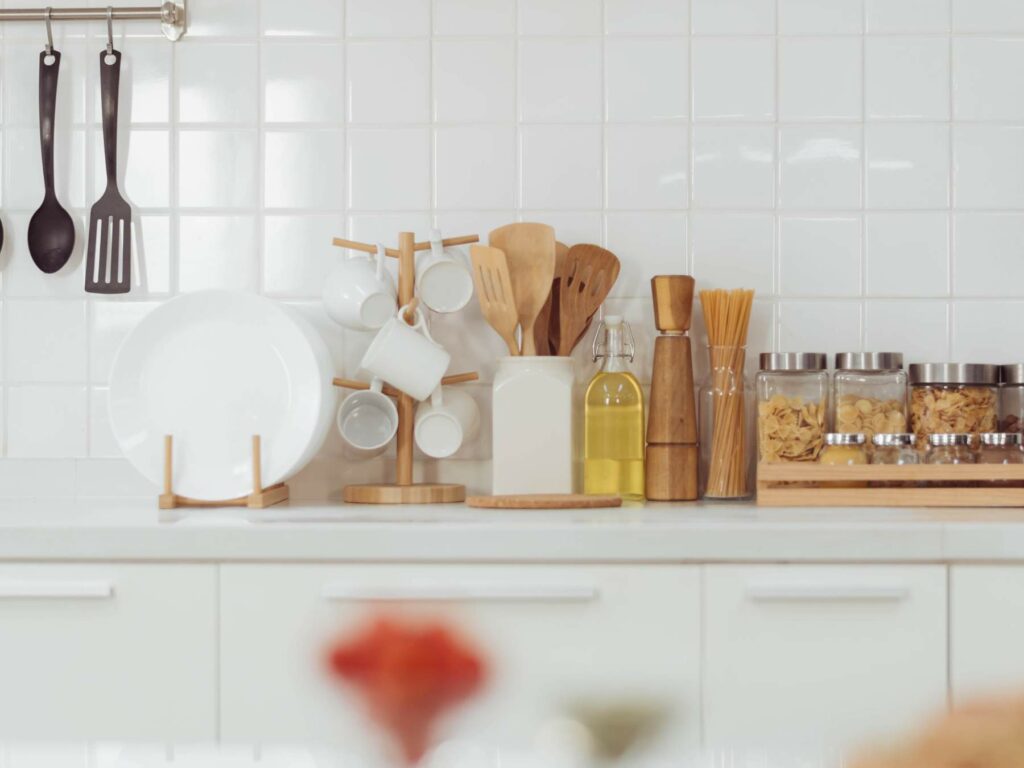
Why Are Non-Toxic Cooking Utensils Important?
I’m a firm believer that everything that touches your food deserves at least some scrutiny. Why? Well, here are some compelling reasons.
Avoiding Potentially Harmful Chemicals
Many traditional plastic utensils contain nasty chemicals like bisphenols, phthalates, and even heavy metals like lead and cadmium. BPA, for instance, is known to mess with your hormones and can lead to serious health problems such as infertility, certain cancers, and even issues like diabetes and obesity, according to the National Institute of Environmental Health Sciences (NIEHS).
Moreover, a 2019 study by Consumer Reports reveals some concerning news: most plastic products contain potentially toxic chemicals. Everyday items like water bottles, food containers, and plastic utensils like spatulas and cooking spoons might be hiding substances that can pose significant health risks. These include reproductive problems, developmental delays in children, and increased cancer risk.
You may be wondering how these materials can end up in our systems. When you cook with these low-quality utensils, especially at high temperatures, these chemicals can leach into your food, says Consumer Reports.
This is even worse with acidic or fatty foods, which speed up the process. Over time, even tiny amounts of these chemicals can build up in your body and potentially cause chronic health issues.
Maintaining Natural Flavors of Your Food
Have you ever used a cheap plastic spoon to cook your food and found the lingering taste of plastic in your meal? Non-toxic materials like stainless steel, silicone, and bamboo don’t interact with your food, so they don’t change its taste.
On the other hand, plastic utensils and packaging, especially cheaper ones, can release chemicals that can give your food an odd taste. This is evidenced by a study published in Trends in Food Science & Technology, where researchers explain that plastic molecules can leach into food and affect its flavor and quality.
It’s also worth noting that food tends to retain its nutritional value when you use cookware and cooking utensils made with safer materials. For example, cast iron cookware allows for even heat distribution, which can help prevent nutrient loss and leaching, according to Dr. Shilpa Thakur.
Protecting the Environment
Non-toxic utensils are often crafted from materials that have a lower environmental impact. Bamboo, for instance, is a highly sustainable resource. It grows quickly, requires minimal water, and doesn’t need pesticides or fertilizers to thrive.
Additionally, the production processes for stainless steel and silicone are generally less harmful to the environment compared to plastics. Stainless steel is highly recyclable and can be reused multiple times without losing its integrity, reducing the need for new raw materials. Silicone, while derived from silica (a component of sand), involves processes that are less polluting and more energy-efficient than those used for producing plastic.
Saving Money
As with most things in this world, higher-quality products generally last longer than their cheaper counterparts. Since healthier cooking utensils typically have a higher price tag because of their quality, you’ll be saving more money in the long run.
Plus, you won’t have to throw away your utensils after just a few months of use. Trust me, I’ve tried to save money by buying cheaper ones but ended up spending more on replacements anyway.
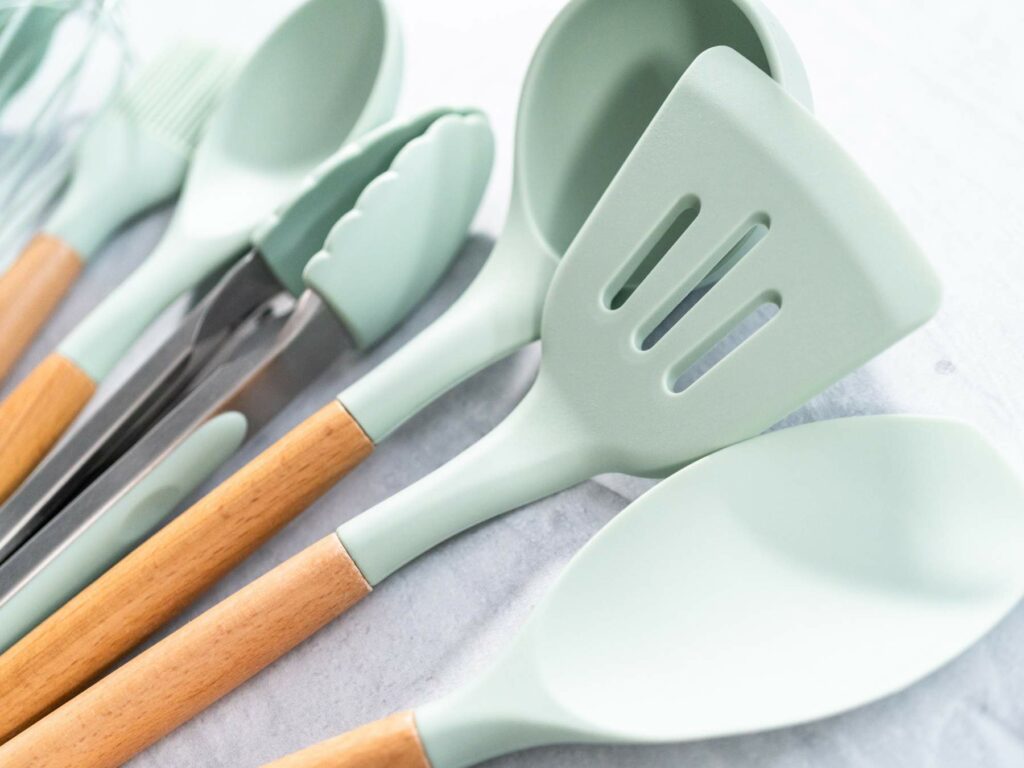
What to Look For in Healthy Cooking Utensils
Do you want to make your meals healthier in all senses of the word? We’ve already gone over the best non-toxic cookware for safer cooking vessels. Now, let’s talk about how to choose better kitchen utensils.
Non-Toxic Materials
The most important factor to consider is what the utensil is made of. Here’s what to look for:
- Stainless Steel: Stainless steel is durable, rust-resistant, and doesn’t leach chemicals into food, even when heated. It’s a long-lasting and reliable choice for any kitchen. Stainless steel is also a very common material for grill tools since it resists heat and damage so well.
- Silicone: High-quality, food-grade silicone is flexible, heat-resistant, and free from harmful chemicals. Silicone utensils are perfect for non-stick cookware as they won’t scratch surfaces, but you have to make sure you don’t overheat them.
- Bamboo and Wood: Wood and bamboo utensils are naturally antimicrobial and free from synthetic chemicals. They’re eco-friendly and gentle on cookware, making them great for everyday use. Just make sure not to let them sit in liquids for too long.
So, what about the materials you should avoid? Generally, it’s best to avoid anything made with polyamide. According to the German Federal Institute for Risk Assessment (BfR), this plastic’s components (oligomers) can migrate to your food and end up in your body. Frequent exposure to oligomers may increase your risk of liver and thyroid disease.
If you must use polyamide kitchen utensils, the researchers warn people to keep contact with hot food as brief as possible, especially at temperatures more than 70C or 158F. This material can melt and release toxic fumes into the air. However, I recommend avoiding this material as much as possible.
Heat Resistance
Heat resistance is a key factor to ensure safety and longevity. Utensils should handle high cooking temperatures without melting, warping, or releasing harmful chemicals. Stainless steel and food-grade silicone are great options since they stay intact even under high heat.
Plus, heat-resistant utensils last longer and remain safe to use over time. They also won’t break down or leach harmful substances into your food.
Reliable & Reputable Brands
Some manufacturers might slap on the labels “non-toxic,” “food-grade,” or “food-safe” on their products even if they don’t meet the criteria. The risk of this misleading labeling is higher when shopping online, so as consumers, we should be extra careful when choosing a brand to patronize.
Brands known for their quality often undergo rigorous testing to ensure their products are free from harmful chemicals like BPA, phthalates, and lead. This gives you peace of mind knowing your utensils are safe.
Moreover, reputable brands use high-quality materials that withstand regular use and high temperatures. As I mentioned before, high-quality materials help make sure your utensils last longer and perform better.
Easy to Clean
Choosing cooking utensils that are easy to clean can make kitchen life much simpler. Look for utensils that are dishwasher-safe to save time and effort. You can also clean stainless steel and silicone by hand pretty easily.
Utensils with non-stick properties prevent food from sticking, making hand washing easier. Smooth surfaces with minimal crevices also help prevent food particles from getting trapped so your utensils are more hygienic.
Value for Money
When it comes to cooking utensils, getting good value for your money means choosing items that are durable, safe, and efficient. Investing in high-quality utensils and green products from reputable brands might cost more upfront. However, you can save money in the long run because they last longer and perform better.
Cook With Safety and Style
Switching to non-toxic cooking utensils is a game-changer for a healthier, safer kitchen. They keep harmful chemicals out of your food, making sure you enjoy natural flavors and maintain your meals’ nutritional quality. Plus, these eco-friendly materials are better for the environment.
By investing in high-quality, non-toxic utensils, you’re making a smart choice for your health, your family’s well-being, and the planet. Ready to transform your cooking experience? Explore our top picks for the healthiest cooking utensils and cook with confidence!
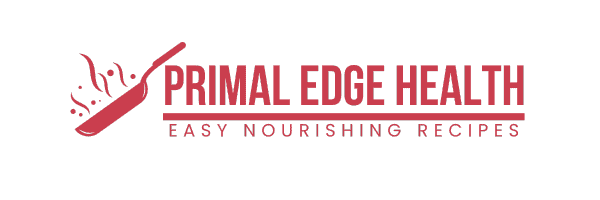

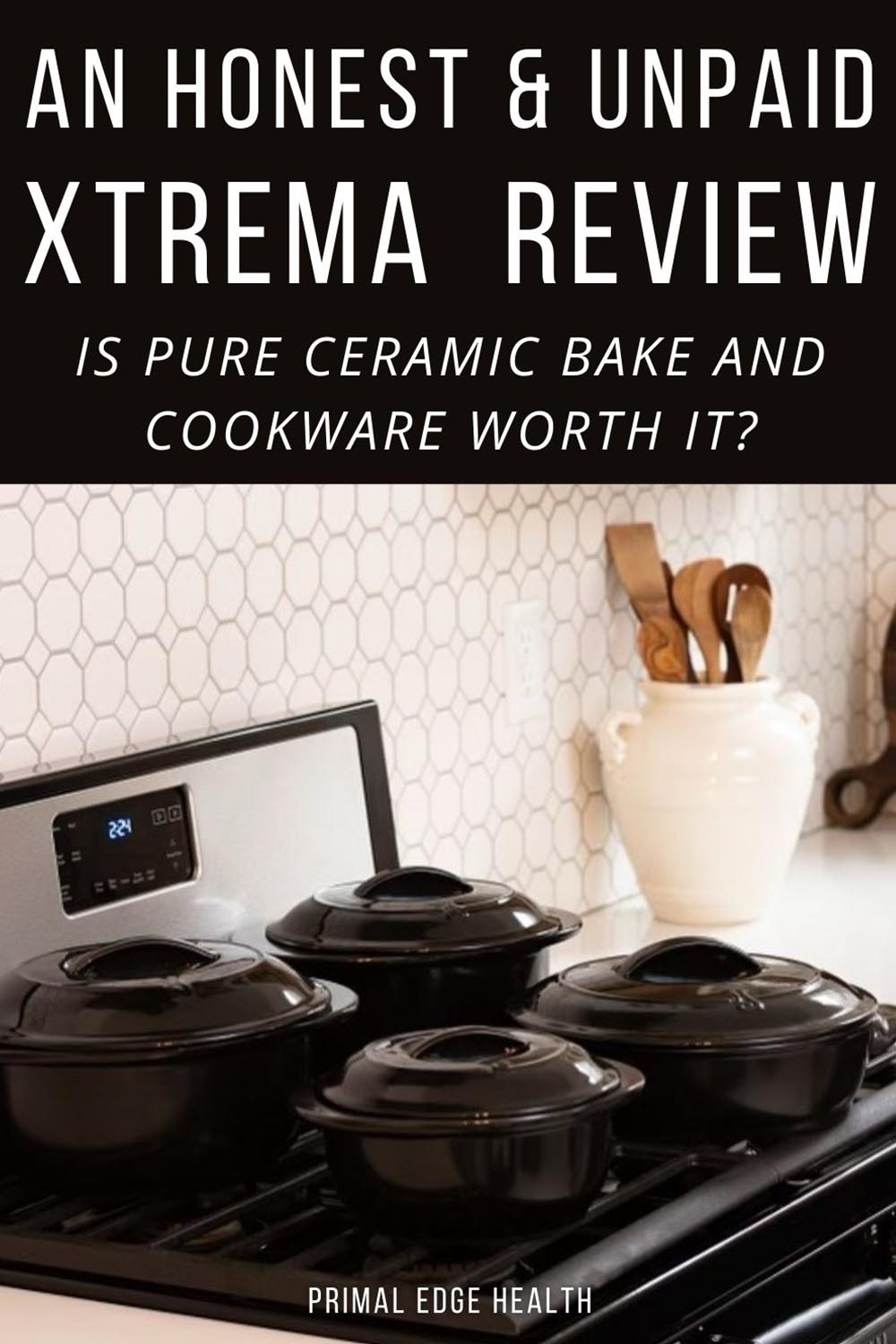
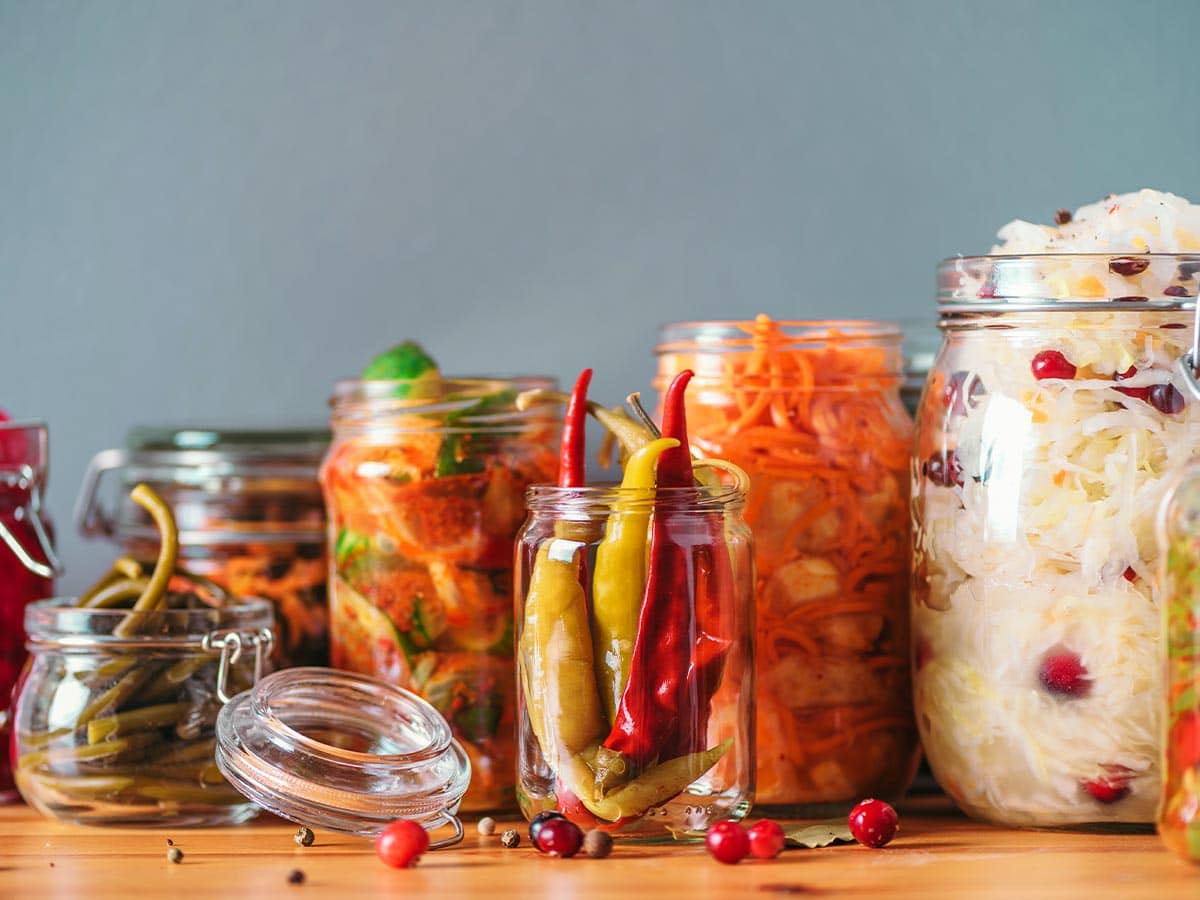
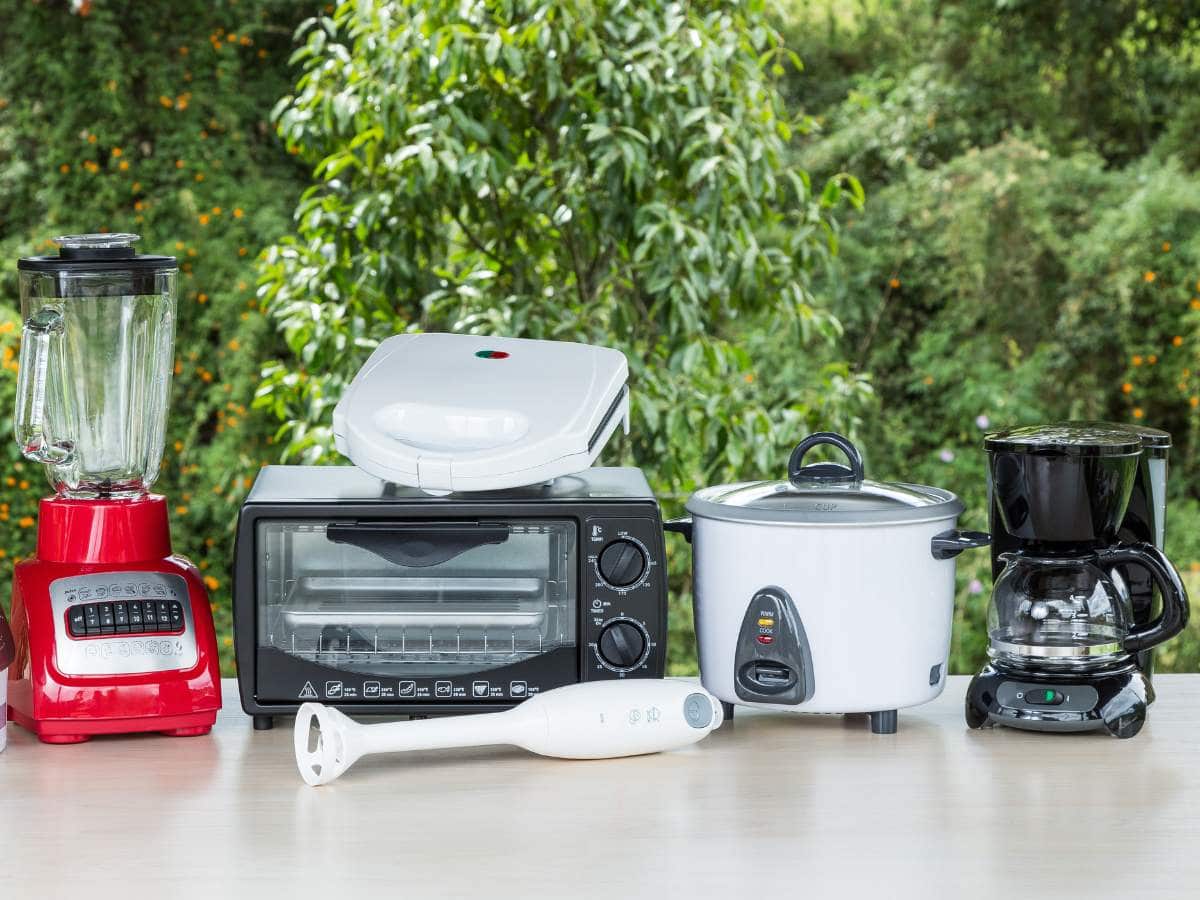
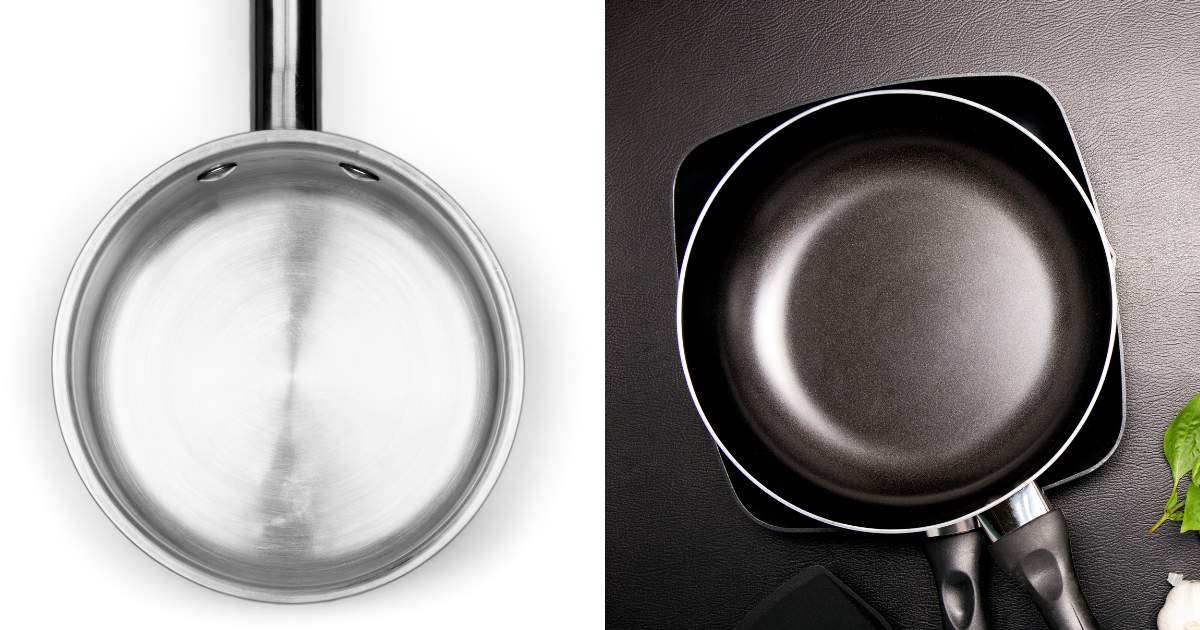
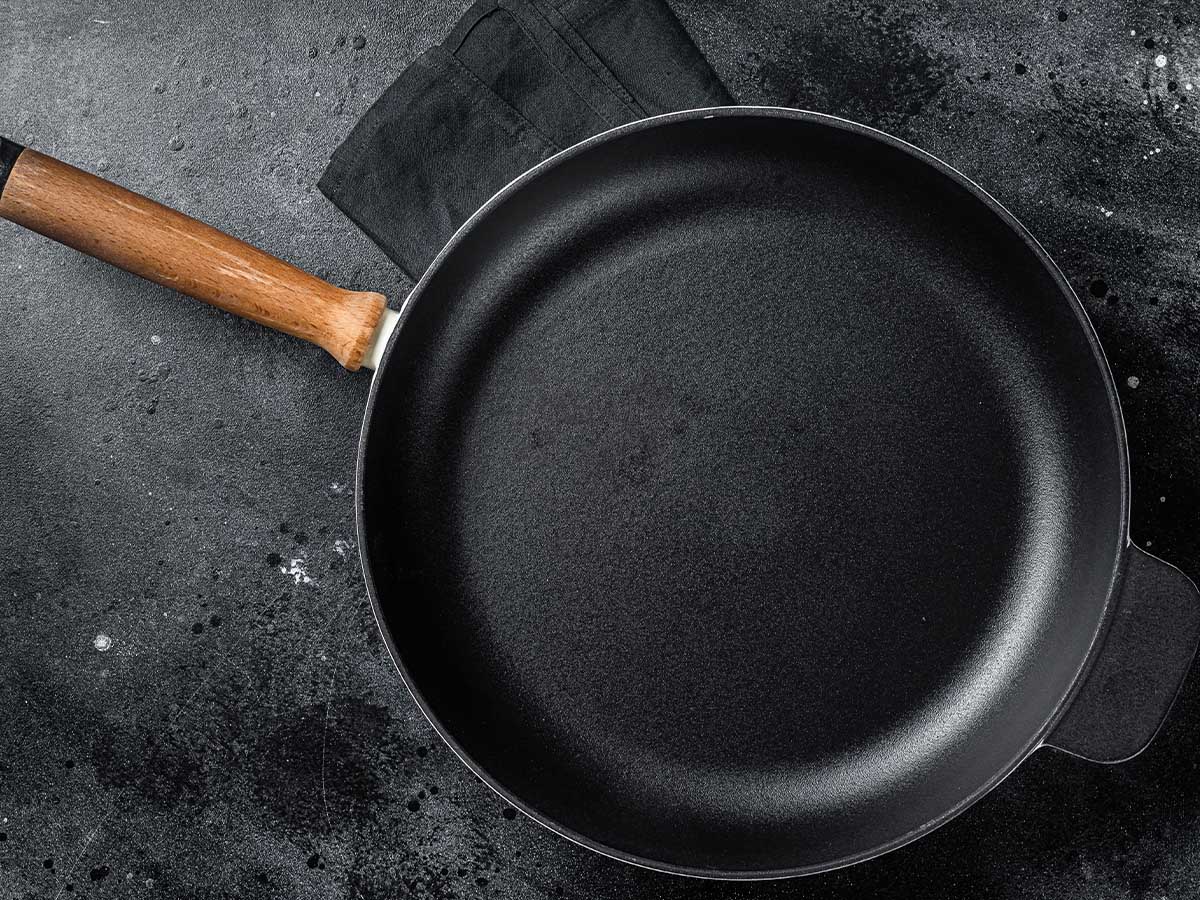
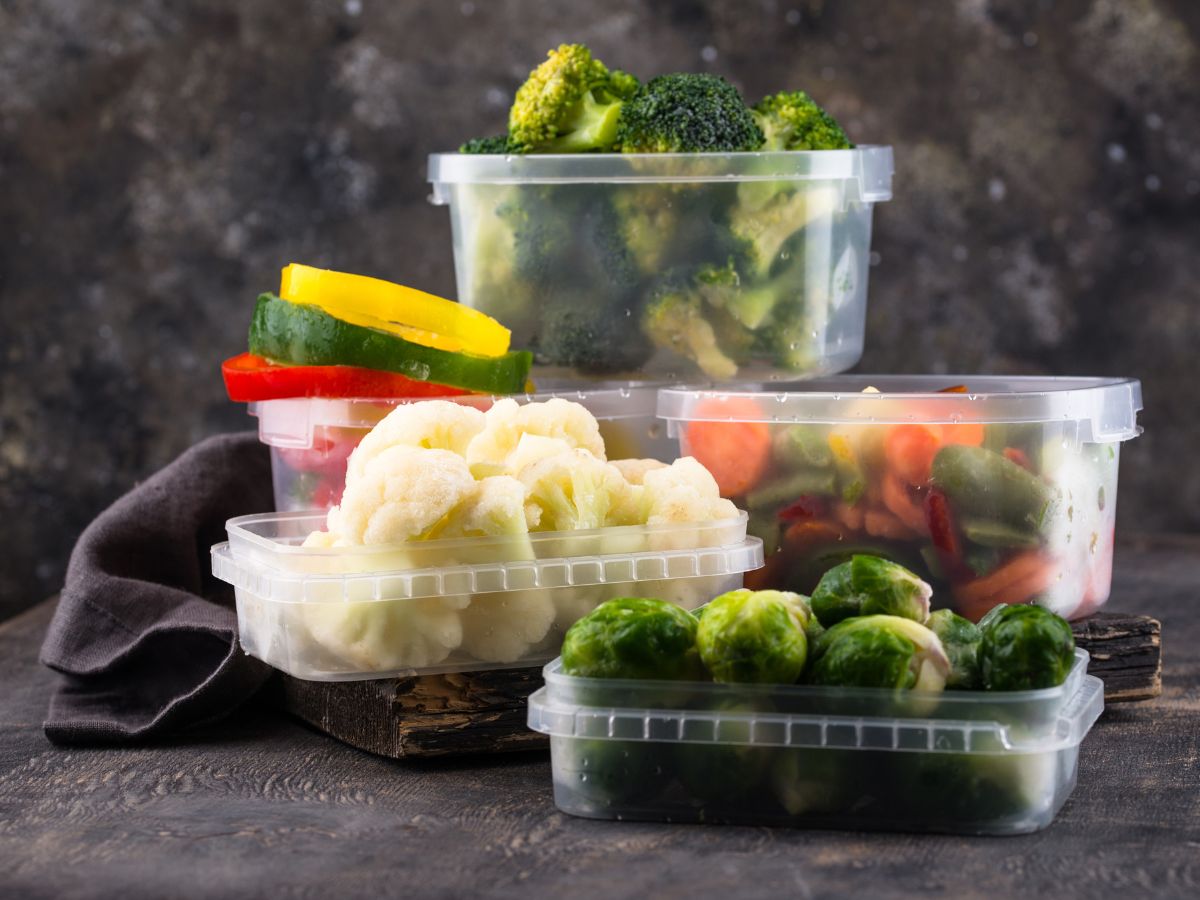
So much helpful information here. I love oxo and am ready to go out and purchase their wooden spoons because mine are definitely toxic. Plus, I need some more glassware!!! Thanks for the infor.
Thank you for visiting the post, Marjory. I’m happy to hear you find the information helpful. Good luck on your purchase! I hope you find utensils that will work well for you.